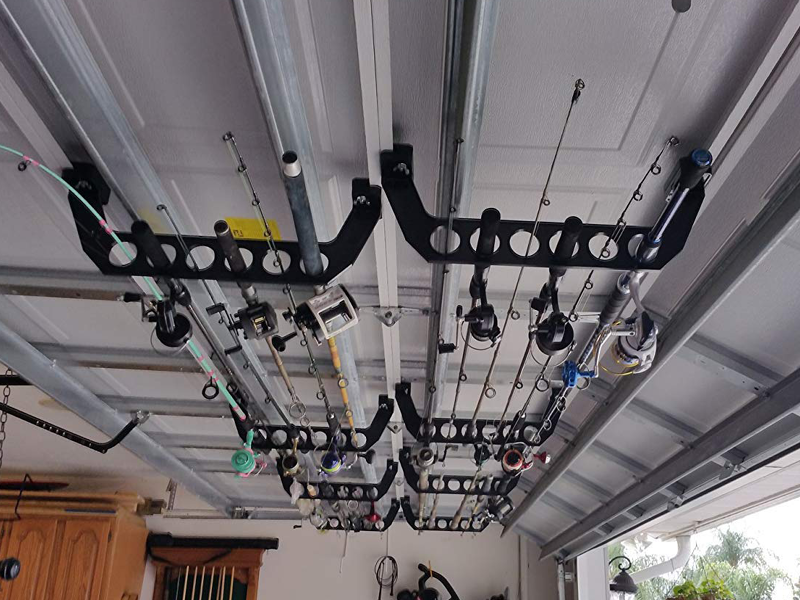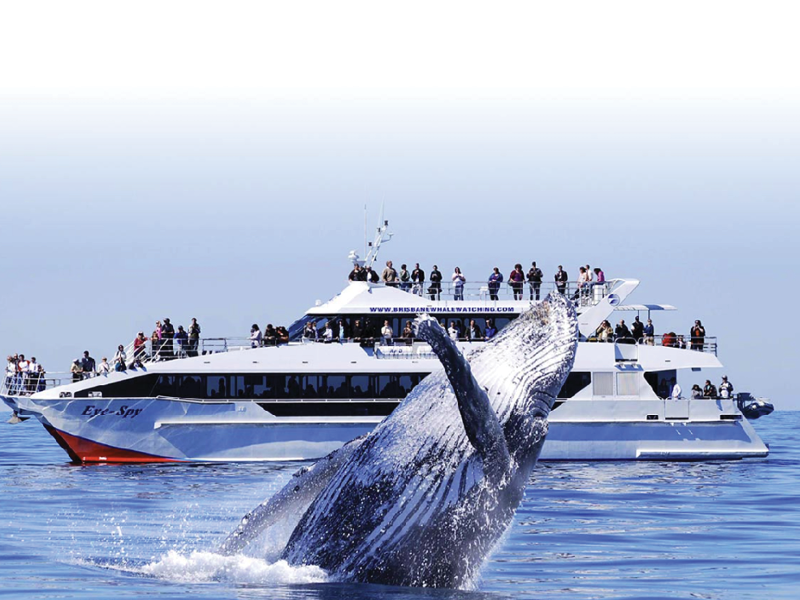Author: Will Hay
Winter usually conveys feelings of crisp cool air, shorter days, and for many, the idea of venturing out on the water doesn’t quite hit the same as the warmer summer months. However, the chilly season usually gives rise to more settled (albeit colder) weather conditions and quieter boat ramps, so a day on the water should definitely not be overlooked if you have a good weather window. For those who prefer fairer climate boating or have parked the waka up for winter, this article explores some nifty hacks to keep your thirst for the ocean alive and help you prepare for the next summer. Even better, some of these tips may even save you money along the way, so what’s not to love about winter?!
1. Don't Hibernate on Maintenance
Ask any marine mechanic and they’ll tell you all the stories of the frantic Labour Weekend start-of-summer rush, and the ‘should have sorted that earlier’ tales that endlessly spring up as the warmer months kick off. Sorting your ship out in winter should mean you’re not the next Larry in line awaiting the same fate.
Winter is the perfect time to tackle all those maintenance tasks you’ve been putting off for several reasons aside from the rush. As it’s the ‘off season,’ not only can you often find discounts on services at local service centres, but performing these tasks now ensures your boat is in top condition for spring.
Key maintenance tasks you should focus on during winter:
- Engine Care: Flush and winterize your engine if you’re not using your boat, change the oil, service the legs, and check for any leaks or issues that you can sort out now, or book it in with your local service centre and have them sort it out. They’ll appreciate the work this time of the year and will probably have more time to go over everything in detail and help you get everything in shape so you can hit the water trouble-free.
- Hull Inspection: Clean and inspect the hull for any signs of damage or wear. Addressing small issues now can prevent costly repairs later or leave you high and dry over summer.
- Electrical Systems: Check all wiring and battery connections. Replace any worn or damaged parts, including solar systems. Unlike your house wiring, boat wires are subject to rattles, movement, and vibration, which can lead to shorting or, in the worst case, fires on board. Go through your loom and check the insulation and connections, and replace anything that’s not looking 100%.
- Safety Equipment: Inspect life jackets, flares, fire extinguishers, and other onboard safety equipment to ensure they are in good condition and up to date. If not, snag a winter deal at your local chandlery or keep an eye on Marine Deals' daily specials over winter to renew your safety kit.
2. Lay Up the Boat and Your Insurance Premiums
Even if you’re not using your boat over winter, it’s still super important to keep your boat covered for events such as theft or fire, but that doesn’t mean you have to pay the full rate on your insurance renewal.
Boat insurers such as Tower offer Lay-Up Cover for trailer craft, providing a discount on your annual insurance premiums for the months you choose not to use your boat. It also provides cover for your boat while it is at a boat dealer for servicing and maintenance or if you are taking it to and from. This type of policy reduces your premium while your boat is not in use, reflecting the decreased risk. Saving money, especially on insurance, is great, so get in touch with your insurer and see if this is an option for your boat or explore changing to an insurer like Tower so you can get cost-efficient cover.
Conversely, we all know the price of boats went a bit silly over the COVID boom, and as such, your boat's sum insured on your policy may not reflect the true value anymore. Dig out your policy or renewal and check that they are in line with the correct current market rate; you could be paying for cover well over your boat's true worth.
3. Gear Up
Winter is also an excellent time to organize and refresh your fishing gear. Re-spooling your reels, sharpening hooks, and cleaning or replacing your tackle can extend the life of your equipment and improve your fishing success. There’s nothing worse than hooking up a monster on that first fishing trip of summer only for old UV-damaged line or rusting hooks to fail on the first pull. Use the downtime to go over all your equipment and make sure everything’s in tip-top shape to eliminate any risk of failure.
Additionally, many tackle shops offer discounts during the off-season, making it the perfect time to buy new gear. Stock up on essentials like lures, lines, and hooks when prices are lower. Properly maintaining and organizing your gear during the winter ensures you’re ready to hit the water as soon as the season starts.


4. Tick off Those Odd Jobs
We all have a list of boating-related projects we’d like to complete, and winter is the perfect time to tackle these tasks without the procrastination of a cheeky fish or day on the water getting in the way.
I’ve recently moved into a new house, and these are a couple of must-do (debatable if you ask my wife) projects I’m tackling this winter so that come spring, I’m well prepared for the season:
- Fillet Station: I’m snagging a used stainless kitchen bench so I can sort out a designated area for cleaning fish, complete with running water and storage for all the filleting and cleaning tools. I spent a season creating a ruckus in the kitchen, filleting on top of the chilly bins, and getting yelled out of the house for dragging a bag of dripping fish guts, which has motivated me into getting this area sorted this year.
- Wash-Down Area: Having a proper area to wash your boat and gear down is crucial not only to extend the life of your kit but to make the admin easier. I have a rainwater tank at home for the garden, and this year I am planning on re-routing some of the lines from the pump to the driveway so I can use the tank water to wash and flush down the ski rather than the town supply. Not only will this save money in the long run, but it’ll also preserve my water supply should we have a future drought season.
- Storage Solutions: Adding dedicated shelving, hooks, or compartments to keep your gear organized and easily accessible is a smart, practical way to keep your gear separate and ready at hand but also protected from other items or kids rummaging around trying to find their rugby ball. Rods are precious items and need to be protected when not in use. One nifty hack that’s popped up on socials this year is utilizing the sectional garage door space into horizontal rod holders. Not a bad idea, as when the door’s down, they’re out of the way against a ‘wall,’ and when the door’s up, they’re out of reach on the ‘ceiling.’ Just make sure you have the clearance before operating the door!
5. Offshore Excursions
While winter in New Zealand may be cooler, it’s the perfect time to plan or jet off to warmer destinations. A couple of not-too-distant destinations that will return that warm summer feeling include planning a trip to the islands such as Fiji or Samoa for a fishing charter. Fiji’s dry season is typically between June and September, otherwise known as Fiji’s “winter.” With outside temperatures being around 21-27°C and water temperatures being around 26-27°C, you can be sure that the fishing shouldn’t disappoint. During this time, you’ll be targeting Wahoo, Sailfish, and the famous Giant Trevally or GT, so it’s the perfect time to head abroad and chase that fish of a lifetime while keeping the summer feeling alive.
A little closer to home is Australia’s East Coast, and there are numerous spots along Queensland to put a nautical pin in and explore. The winter season from June to August is when whale migration is in peak force, especially with Humpback whales as they make their passage from the Antarctic to the warmer northern waters to mate, feed, and give birth. East of Moreton Bay is dubbed ‘Humpback Highway,’ and it’s not by accident. During these months, you’re almost guaranteed to spot numerous whales migrating along the coastline, and there are a number of day charters that can take you out amongst it, such as Brisbane Whale Watching Tours, which have a 100% guarantee on whale sightings!
So, embrace the so-called off-season to get your ship sorted, organize your gear, complete those long-awaited projects, and even snag a fine day's fishing! Even if you don’t get out on the water over winter, a bit of focus and preparation invested over this season will see you well-prepared and financially savvy, ready to enjoy the warmer weather to the fullest. Stay warm, stay safe, and happy winter boating!
Boatie's Best Mate.
Get a Coastguard membership today for peace of mind when you’re out boating.

